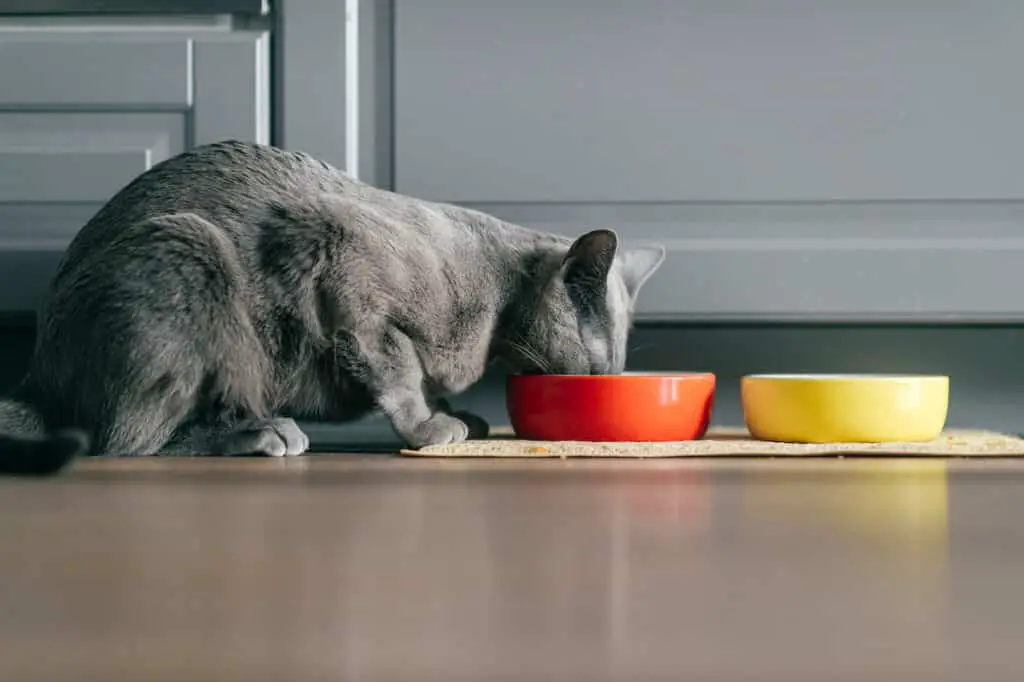Often times when your cat is eating a lot, it is because of a few reasons. It could be because they are pregnant, they have been infected with worms, or it could be due to Hyperthyroidism. Whatever the reason is, there are ways to get them to stop eating so much.
Infestation of worms
Several types of worms can infect cats. The most common types include roundworms, tapeworms, and intestinal worms. They can cause discomfort and can lead to other health problems. It is important to know how to identify and treat worms in cats.
Intestinal worms are caused by coccidia, a small single-celled parasite that lives in the cat’s intestine wall. These worms cause severe diarrhea and can be life-threatening to young kittens.
Adult stomach worms attach to the inner lining of the stomach. They can cause weight loss and other health problems. They can also cause inflammation of internal organs. In some cases, they may cause bleeding.
Roundworms are the most common type of worm. These worms have an egg-like head and live in the intestines. They are usually three to six inches long. They can live up to two years in a host.
Cancer
Managing a cat that is suffering from cancer can be challenging. It is important to keep your pet comfortable and to monitor his or her diet. It is also important to detect the signs of cancer early.
A cancerous oral tumor may cause your cat to have a bad odor, sores, bleeding or decreased appetite. Your vet may suggest a dental cleaning.
Chemotherapy and radiation therapy are also effective in managing a cat with cancer. These treatments are administered through an injection, a pill or an oral drug. These treatments can help stabilize the tumor and prolong the pet’s life.
Surgery is also a common form of cancer treatment. It is important to note that surgery can be used to treat both benign and malignant tumors.
Diabetes
Among the most common signs of diabetes in cats are frequent urination, weight loss, and increased thirst. If left untreated, undiagnosed diabetes can lead to many health complications.
Diabetes in cats can be controlled with medication and diet changes. The goal is to get the blood sugar back to a normal level. If you suspect your cat has diabetes, contact a veterinarian immediately.
Your veterinarian will perform a urinalysis, take blood samples, and check your cat’s glucose levels. They will also perform tests for infections and other diseases that may mimic diabetes symptoms. They can also prescribe prescription food for your cat if necessary.
Your veterinarian may also suggest that you change your cat’s diet to one that is high in fiber and low in carbohydrates. This will help your cat lose weight.
Hyperthyroidism
Often, hyperthyroidism is treated with medication. The medications help to suppress the symptoms of hyperthyroidism and may prevent pain and discomfort. However, they don’t cure hyperthyroidism. This is why it is important to have your pet checked by a vet if you think he or she may have it.
Hyperthyroidism in cats is usually the result of a benign overgrowth of the thyroid gland. These glands are located in the neck.
Occasionally, hyperthyroidism is caused by an ectopic thyroid tumor. These can be located under the tongue or further down the neck. This can lead to hyperthyroidism even after the thyroid tumor is removed.
Treatments for hyperthyroidism in cats vary. Some treatments include limiting iodine in the diet. This may prevent the cat from producing too much hormone. Other treatments include dietary supplements.
Pregnancy
Taking care of your pregnant cat should be a top priority. They’re going to need extra TLC, food, and water during this time. They’re also going to need some extra special care, such as flea treatment and vaccinations. You’ll also want to make sure your cat is properly wormed.
There are several ways you can tell if your cat is pregnant, so it’s important to make sure you’re doing everything you can to keep her healthy. Pregnancy is a delicate time for your pet, so be patient and calm.
You’ll see a lot of changes in your cat during this time. For starters, they’ll eat more than usual. You’ll also see a swollen belly. Your cat is also going to want to sleep more than usual.














